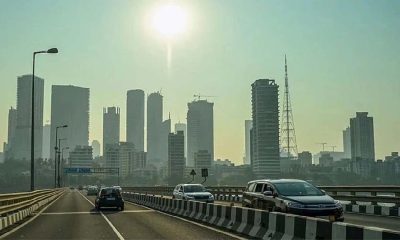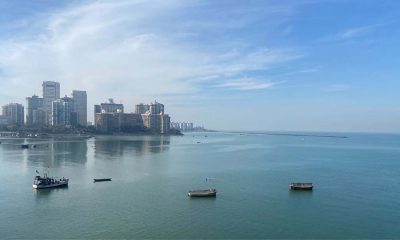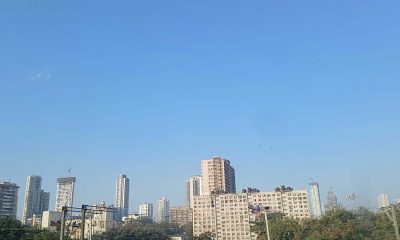National News
Delhi HC allows impleading city govt, CBSE, NCERT in plea seeking common syllabus, curriculum across India
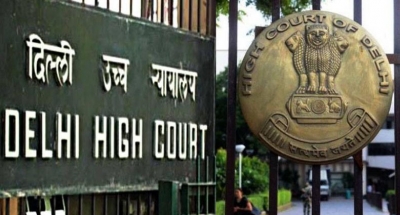
The Delhi High Court has allowed the petitioner to implead the Central Board of Secondary Education (CBSE) and National Council of Educational Research and Training (NCERT) and the Delhi government as parties to his plea challenging the syllabus and curriculum varying for each strata of society and seeking common syllabus for children across the country.
A division bench of Chief Justice Satish Chandra Sharma and Justice Yashwant Varma allowed petitioner advocate Ashwini Upadhyay to move an application to implead the above-mentioned three parties.
The court listed the matter for the next hearing on March 10.
Upadhyay argued before the court that all competitive examinations be it engineering, law and the Common University Entrance Test (CUET) should have a common syllabus.
He said: “But we have multiple syllabus at school level, how will it provide an equal opportunity for students? In Kendra Vidyalayas across the country, we have a common syllabus. Every developed country has a common syllabus in schools. It is unfortunate we are under pressure from the coaching mafia.”
He contended that as per the concerned Articles of the Constitution, students do not get equal opportunities.
Upadhyay’s plea read: “Education mafias are very powerful and have a very strong syndicate. They influence rules, regulations, policies and examinations. The bitter truth is that school mafias do not want one nation-one education board, coaching mafias do not want one nation-one syllabus, and book mafias do not want NCERT books in all schools. That is why the uniform education system up to the 12th standard has not been implemented yet.”
Provisions under the Right To Education Act which excludes madrasas, Vedic pathshalas and educational institutions imparting religious knowledge, were also challenged as per the plea.
“It is necessary to state that the purposive and harmonious construction of Articles 14, 15, 16, 21, 21A with Articles 38, 39, 46 confirms that education is a basic right of every child and the State cannot discriminate against this most important right. Right of a child should not be restricted only to free education, but must be extended to have equal quality education without discrimination on the ground of the child’s social, economic and cultural background,” the plea read.
The plea further said: “Therefore, the court may declare Sections 1(4) and 1(5) arbitrary, irrational and violative of Articles 14, 15, 16 and 21 and direct the Centre to implement common syllabus and common curriculum for the students of I-VIII standard throughout the country.”
Crime
A powerful explosion near Delhi’s Red Fort… High alert across Delhi after the blast; 8 people killed; forensic team arrives at the scene.

New Delhi: A car explosion near Gate No. 1 of the Red Fort Metro Station on Monday evening caused widespread panic. The force of the blast was so intense that a part of the car landed on the Lal Mandir, located near the Red Fort. The temple’s glass shattered, and doors and windows of several nearby shops were damaged. Several people were reported injured in the incident.
Immediately after the blast, fires were reported in nearby shops. Tremors were felt as far as the Bhagirath Palace area of Chandni Chowk, and shopkeepers were seen calling each other to inquire about the situation. Several buses and other vehicles were also reported to have caught fire.
The fire department received a call about the car explosion in the evening. Following this, it immediately dispatched six ambulances and seven fire tenders to the scene. Relief and rescue operations are underway, and efforts are underway to control the fire.
The cause of the explosion is still unknown. Police have cordoned off the area, and investigating agencies are gathering evidence at the scene. Initial reports suggest the explosion occurred in a car, but its nature and cause are still unclear. Security has been increased throughout the Red Fort and Chandni Chowk areas following the incident.
National News
Maharashtra CM Devendra Fadnavis Orders World-Class Facilities, AI-Based Security At Jyotirlinga Temples
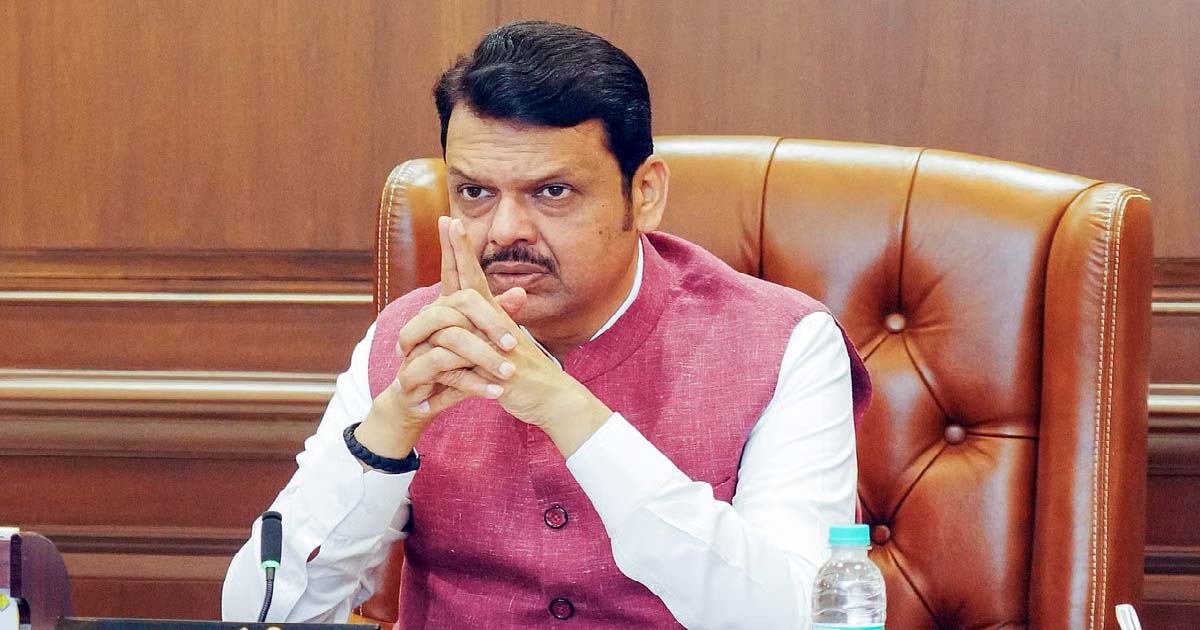
Mumbai: Maharashtra Chief Minister Devendra Fadnavis on Monday directed officials to ensure world-class facilities and a state-of-the-art integrated AI-based security system for devotees visiting Jyotirlinga shrines in the state.
During a meeting held at Varsha, his official residence, Fadnavis reviewed the development plans for the Bhimashankar Temple in Pune district, Aundha Nagnath Temple in Hingoli, and Grishneshwar Temple in Chhatrapati Sambhajinagar.
“Jyotirlinga temples attract a large number of devotees throughout the year. Therefore, the development plans should be comprehensive and focused on creating excellent facilities and ensuring security,” he said.
The chief minister instructed officials to accelerate ongoing works and plan new ones effectively.
“An advanced, AI-based integrated security system should be developed to safeguard devotees and provide an immediate response during emergencies,” he said.
Fadnavis further said that facilities such as waiting halls, drinking water, accommodation, internal roads, cleanliness measures, information boards, tourist facilitation centres, parking management, emergency response systems, health facilities and eateries should be strengthened.
He emphasised that temple managements follow strict norms and residents and administrative bodies should be involved in planning and execution.
“Tourism projects that promote environmental conservation and local employment must be implemented quickly,” he said.
The chief minister said that the development plans presented at the meeting will receive funding after approval by a high-level committee, and he asked officials to organise a separate meeting with the Central government to secure clearances from the Archaeological Survey of India (ASI).
Crime
Thane: Man Stabbed To Death In Dombivali Hotel After Minor Altercation

Thane: A man was stabbed to death in Dombivali in Thane district during an altercation after he accidentally brushed against another person, a police official said on Monday.
The incident took place in a hotel in the early hours of Sunday in MIDC Phase 1 area, the Manpada police station official said.
“Akash Bhanu Singh (38) and his friends were having dinner at the hotel when he accidentally brushed against the accused, who picked up a fight. He along with some others stabbed Singh to death. Two of Singh’s friends, who tried to save him, also sustained injuries and have been hospitalised,” the official said.
Four persons were booked under Bharatiya Nyaya Sanhita sections for murder and other offences, though no arrest has been made, he said.
-

 Crime3 years ago
Crime3 years agoClass 10 student jumps to death in Jaipur
-

 Maharashtra1 year ago
Maharashtra1 year agoMumbai Local Train Update: Central Railway’s New Timetable Comes Into Effect; Check Full List Of Revised Timings & Stations
-

 Maharashtra1 year ago
Maharashtra1 year agoMumbai To Go Toll-Free Tonight! Maharashtra Govt Announces Complete Toll Waiver For Light Motor Vehicles At All 5 Entry Points Of City
-

 Maharashtra1 year ago
Maharashtra1 year agoFalse photo of Imtiaz Jaleel’s rally, exposing the fooling conspiracy
-

 National News1 year ago
National News1 year agoMinistry of Railways rolls out Special Drive 4.0 with focus on digitisation, cleanliness, inclusiveness and grievance redressal
-

 Maharashtra12 months ago
Maharashtra12 months agoMaharashtra Elections 2024: Mumbai Metro & BEST Services Extended Till Midnight On Voting Day
-

 National News1 year ago
National News1 year agoJ&K: 4 Jawans Killed, 28 Injured After Bus Carrying BSF Personnel For Poll Duty Falls Into Gorge In Budgam; Terrifying Visuals Surface
-

 Crime1 year ago
Crime1 year agoBaba Siddique Murder: Mumbai Police Unable To Get Lawrence Bishnoi Custody Due To Home Ministry Order, Says Report



